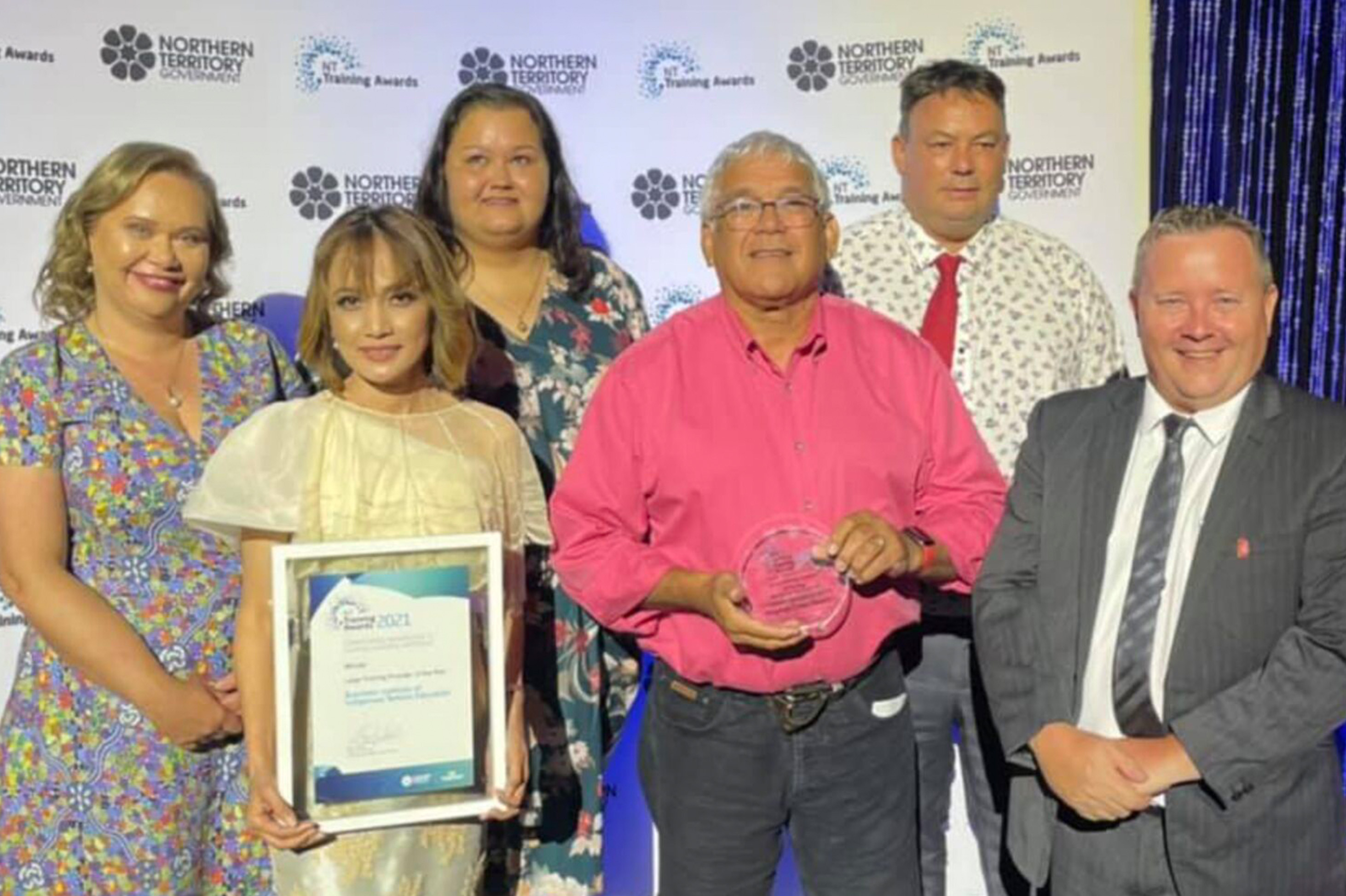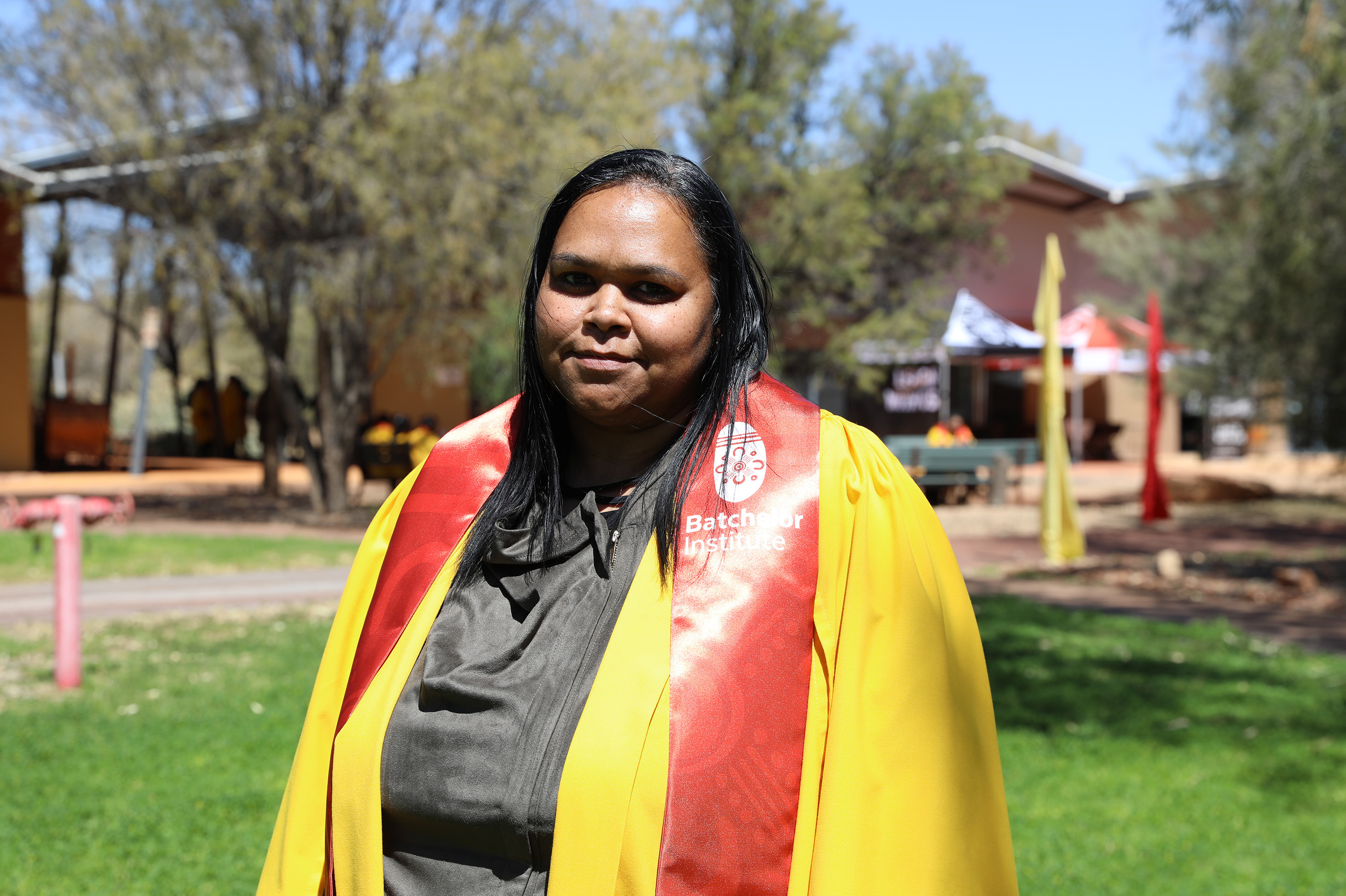

Batchelor Institute won two categories at the 2021 NT Training Awards held last Saturday 18 September, including ‘Large Training Provider of the Year’ and ‘Vocational Student of the Year’.
Ghungalu and Yiman man and Batchelor Institute CEO, Mick Gooda, said both awards were credit to the excellence of staff and students at Batchelor Institute.
Mr Gooda said, “We are proud of the educational opportunities and employment pathways that Batchelor Institute provides to support First Nations students, who mostly live in remote communities, to gain entry into the workforce, or upskill to advance their careers into leadership roles,” Mr Gooda said.
“Our students are our priority, and their success is fostered by our tremendous staff who I want to acknowledge and thank.”

Batchelor Institute Alumni and ‘2021 Vocational Student of the Year’, Makisha Tilmouth, graduated from Batchelor Institute with a Certificate IV in Aboriginal and Torres Strait Islander Primary Health Care (Practice) earlier this month.
Mr Gooda said, “Makisha has an important career ahead of her as a health practitioner in Central Australia, caring for her family and community, and also as a leader and role model for younger generations.”
“I congratulate Makisha for her dedication to her education which has led to this well-deserved award. I also wish her luck as she goes through as a finalist at the 2021 Australian Training Awards,” said Mr Gooda.
“We are also very excited to again progress through to the Australian Training Awards and are hoping for a back-to-back win of a top gong to follow on from last year’s success.”
Batchelor Institute and Australian Defence Force won the 2020 Australian Training Awards ‘Industry Collaboration Award’ for the life changing impact the ‘Regional Force Surveillance Group – Education and Development Course’ has on students, while celebrating First Nations culture and allowing Australia to better protect its northern borders.
Mr Gooda said, “Batchelor Institute delivers training both On Country, where students have the support of their families; and on campus, where students study alongside other First Nations students, in a residential setting for short term blocks.”
